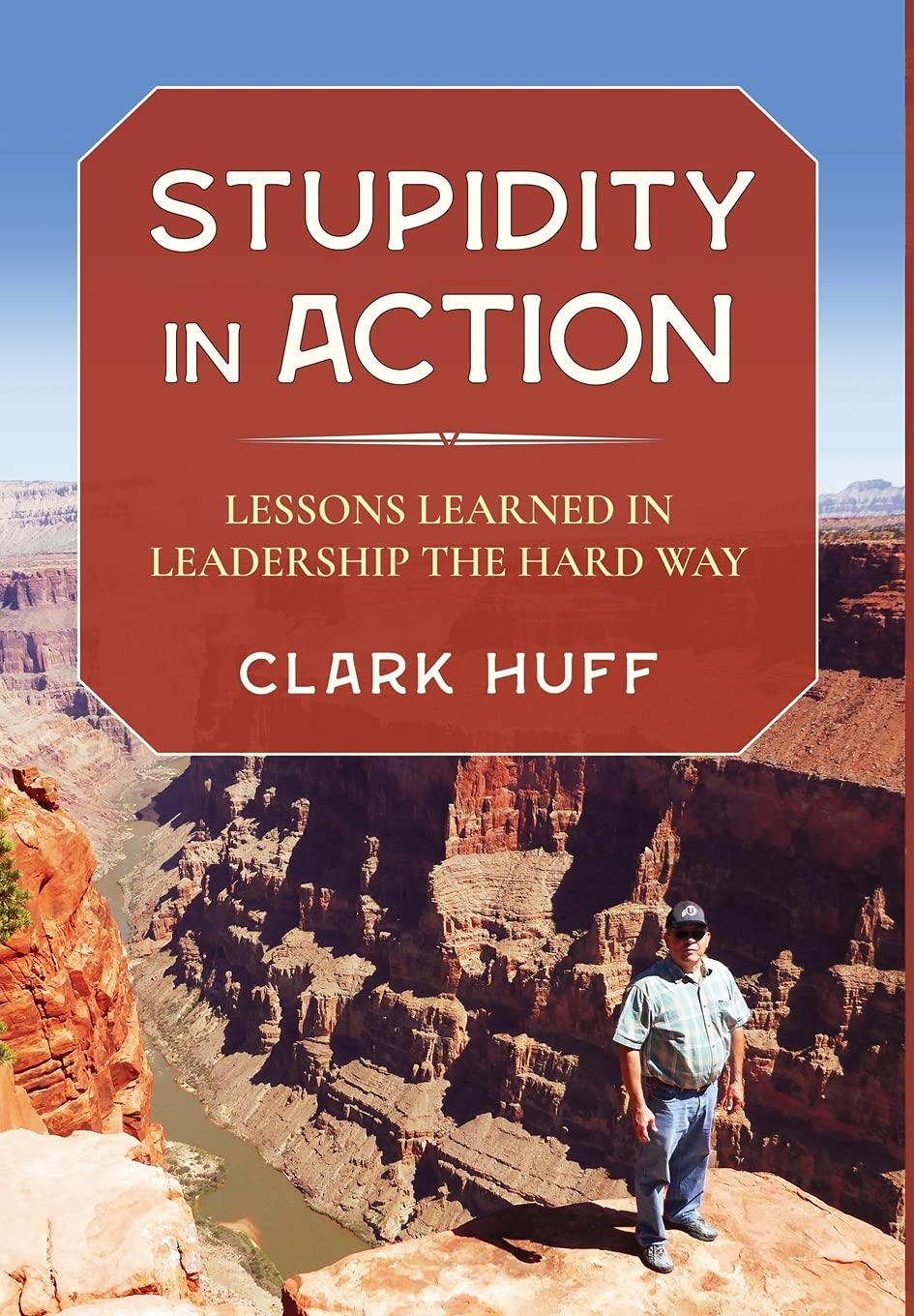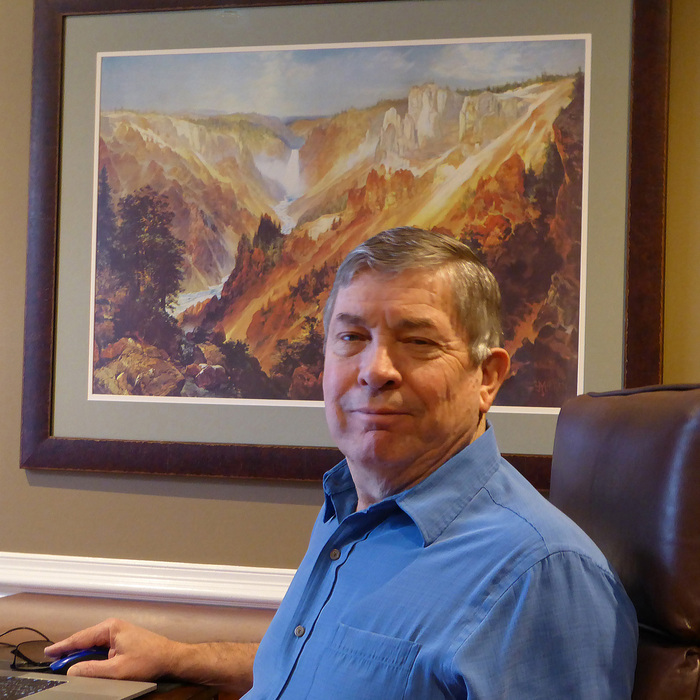 From the author’s wild childhood to being a Vice President and everything in between.
From the author’s wild childhood to being a Vice President and everything in between.
Salt Lake City, Utah –Clark Huff’s memoir is filled with teachable moments that everyone can learn from. This memoir (IngramSpark, June 21, 2021) is well crafted, entertaining and packed with “AHA!” moments.
“It’s easy to be stupid, but it takes imagination to have fun doing it”
Those who knew Clark Huff as a child believed he would either be in jail or dead before he graduated high school. They had good reason to think that. He paid little attention to authority and never considered the risk of his actions. Surprisingly, Clark not only lives to graduate high school, but goes on to earn a degree in metallurgical engineering. During his professional career, he becomes a world traveler and immerses himself in other cultures with much hilarity and humility.
These stories are not only entertaining, but will provide you examples of how not to handle a situation. An illustration of what we are all capable of no matter our mistakes along the way. It is always better to learn from someone else’s stupidity.
“Stupidity in Action: Lessons Learned in Leadership the Hard Way”
Clark Huff | June 21, 2021 | IngramSpark | Memoir
Paperback | 978-1-7365040-0-0 | $24.99
Ebook | 978-1-7365040-2-4 | $8.99
 CLARK HUFF: Clark Huff believes he was extremely fortunate to grow up in the 1950s in Spanish Fork, Utah; a small town that would tolerate an adventurous but disobedient boy and help him to learn from his mistakes. He quickly found that his favorite recreation was hunting, fishing, skiing and playing pranks on those around him.
CLARK HUFF: Clark Huff believes he was extremely fortunate to grow up in the 1950s in Spanish Fork, Utah; a small town that would tolerate an adventurous but disobedient boy and help him to learn from his mistakes. He quickly found that his favorite recreation was hunting, fishing, skiing and playing pranks on those around him.
He attended the University of Utah and began his career as an associate engineer at a mineral production facility located in Moab, Utah. Although he continued to pull pranks and make mistakes, he learned from them and eventually gained a reputation for solving difficult problems.
Besides Moab, he has lived in North Carolina, Nebraska, and Illinois, as he advanced in the company to finally become the Vice President of Capital and Technology. After retiring in 2012, he spends much of his free time enjoying the outdoors, often with his children and grandchildren. Clark currently lives in a quiet town right outside Raleigh, North Carolina but also spends time at his house in St George, Utah.
In an interview, Clark Huff can discuss:
- How a very disobedient, troublesome child can become a successful VP of a corporation
- The importance of setting critical goals at an early age
- How practical jokes often help relieve tension in a work environment
- How following his “gut feeling” made him better at decision making
- His management style and how it benefits the company and its employees
- How taking risks as a child made him braver as an adult
An Interview with Clark Huff
1. What was the most valuable lesson you learned over your time as a “troublesome” kid?
The most valuable lesson I learned as a “troublesome” kid was to consider the consequences of my actions. The thrill of tormenting my siblings and others provided the drive for me to experiment with rockets, chemistry and electricity. However, gassing my siblings with chlorine could have caused a serious health problem or death. My experiment to produce hydrogen from water ended with an explosion that could have killed me. These disasters eventually taught me to think about what could go wrong before I started an adventure.
2. What was the most difficult thing about being the Vice President of a company?
The most difficult thing about being the Vice President of a company was making the decision to close a production facility. If the plant had no chance of becoming economic, it had to be shut down. However, laying off people that were friends and hard-working employees was very difficult. Although I made sure they had the option of transferring to a different facility, it still was depressing.
3. What are some of your favorite pranks you’ve pulled over the course of your life?
My favorite pranks include hiding under my younger brother’s bed with a tape recorder and playing sounds that terrified him at bedtime. On another occasion I used my sister’s fear of insects against her by placing a large bottle of grasshoppers in her bedroom late at night and removing the lid. As an adult, my favorite prank was when I faxed a letter to an office supervisor that stated $2,500 per month of his wages were being garnished. The letter explained that the company had received a court order stating he had to pay child support to his ex-wife for children she’d had since they had divorced and children she planned to have in the future. Surprisingly, he believed it.
4. What advice would you give to someone writing a memoir?
It is a good idea to have a third party review the narrative arc and stories used to get readers interested. I found that although my initial selection was interesting to me, it was boring and uninteresting to the general public.
5. What is one advice you would give to parents who are raising children deemed “unruly”?
It is often good to involve an unruly child in a long-term joint activity with a parent. In my case, my dad started taking me to help him on his electrical contracting jobs when I was only eight. Although all I did was occasionally run to his van to get tools and supplies, we had a lot of conversations. This allowed us to talk freely about all kinds of topics which built a strong bond between us.
6. What helped most in solving difficult production problems?
I found that soliciting ideas from the hourly employees provided invaluable insights in resolving problems. I could then sort out the good ideas using my education as an engineer. Others in senior management often felt that it made them look weak if they asked the workers for their ideas.
7. What was the most destructive practice you observed as a Vice President?
In some cases, I observed incompetent people being promoted because they “sucked up” to senior management. Having an incompetent person in a critical job can be very damaging and expensive for the company. They not only made poor and costly decisions; they would also promote other “suck ups” which added to the problem.

A former award-winning journalist with national exposure, Marissa now oversees the day-to-day operation of the Books Forward author branding and book marketing firm, along with our indie publishing support sister company Books Fluent.
Born and bred in Louisiana, currently living in New Orleans, she has lived and developed a strong base for our company and authors in Chicago and Nashville. Her journalism work has appeared in USA Today, National Geographic and other major publications. She is now interviewed by media on best practices for book marketing.
